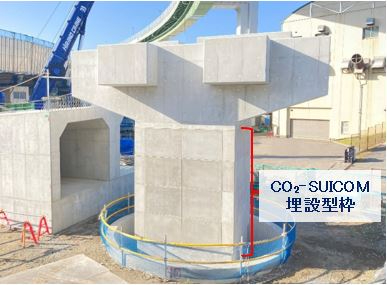JSTORIES ー 對於少子化和人口減少問題日益嚴重的日本來說,克服不孕症、胎兒發育不全等與懷孕、分娩有關疾病,已成為一個重大醫學挑戰。這些疾病的發病機制尚不完全明確,且尚未確立有效的治療方法,但日本研究者小組首次在世界上證實,這些疾病的主要原因之一是「新型自體抗體(ネオセルフ抗体,neo-self antibody)」的產生。
新型自體抗體與這些疾病之間關係的發現可能會帶來免疫學和內科領域的創新發展,例如根據全新思路開發疫苗,為不孕症的治療提供新方向。

人體產生的抗體本應具有排除體內細菌、病毒等外來異物的作用,但如果免疫系統因某些原因發生異常,就會攻擊自身的細胞或組織,這些異常分子被稱為自體抗體。
自體抗體被認為會引發結締組織疾病、多發性肌炎、甲狀腺機能亢進等自體免疫性疾病。2015年,神戶大學與大阪大學的共同研究發現了一種新的自體抗體——「抗β2GPI/HLA-DR抗體」,並驗證這種抗體會導致血栓和其他疾病形成。

今年5月,山梨大學與手稲溪仁醫院的共同研究發現,新型自體抗體(ネオセルフ抗体,neo-self antibody)與不孕症、子宮內膜異位症以及反覆著床失敗等病症有關聯。而在6月,神戶大學等研究小組發表研究結果,指出新自體抗體與妊娠高血壓症候群、不育症和胎兒發育不全等問題有關聯。這些研究成果是全球首次取得的突破。
今年5月,由山梨大學醫學部附屬醫院的特聘助理教授小野洋輔、吉野修教授、手稲溪仁會醫院不育症中心的山田秀人中心長,以及神戶大學大學院醫學研究科婦產科領域的特聘教授谷村憲司等人組成的研究小組發表了研究成果。而6月的發表則是由神戶大學的谷村特聘教授、手稲溪仁會醫院的山田秀人中心長、大阪大學微生物病研究所的荒瀬尚教授等人組成的研究小組進行。

谷村特聘教授等人認為,新自身抗體不僅與不孕症相關,甚至對能懷孕但反覆流產或死產的不育症也有密切相關。為此,他們與富山大學、岡山大學、東京大學、兵庫醫科大學合作取樣,並持續研究以證明新型自體抗體與這些病症之間的關聯性。
谷村教授表示:「有些女性盼望懷孕生產,但反覆經歷超過10以上次流產,為不育症所困擾的女性也大有人在。」研究結果顯示,約四分之一的不育症女性對新型自體抗體呈陽性,這表明新型自體抗體可能是導致不育症的主要原因之一。

此外,在6月發表的研究中,對包括四所大學醫院的患者,總共來自全國五家醫院的女性進行採血,並將研究對象分為:「不育症的女性」、「在過去或現在懷孕期間患有妊娠高血壓症候群、胎兒發育不全或早產的女性」、「沒有慢性病例且過去懷孕時務異常,並成功分娩正常大小嬰兒的女性」三組,並比較每組的新型自體抗體(ネオセルフ抗体,neo-self antibody)的陽性率。
在分析排除年齡、BMI、吸煙等可能影響高血壓症候群和胎兒發育不全的其他因素後,統計計算結果顯示,「新型自體抗體與婦產科疾病的相關性強度指標——危險對比值(Odds Ratio):不育症為3.3倍,妊娠高血壓症候群為2.7倍,胎兒發育不全為2.7倍,這表明了它們之間有著顯著的相關性。」谷村特聘教授指出。

隨著 2015 年以來持續進行的研究和發表,能夠進行新型自體抗體檢測的醫療機構在日本全國逐漸增多。谷村特聘教授表示:「我希望能夠發表針對不孕和不育症女性的有效治療方法研究成果。在未來幾年內,希望透過臨床試驗等方式,拿出治療方法有效的證據(證明)。」
此外,谷村特聘教授還表示:「新型自體抗體的研究不僅限於婦產科領域,它還可能成為解開類風濕性關節炎或甲狀腺機能亢進等自體免疫疾病謎團的關鍵。基於這些研究成果,有可能開發出新的疫苗,為免疫內科領域帶來革命性的發展,並能應用於疾病治療。」
文章:大平誉子 編輯:北松克朗
封面照片:由Envato提供
關於本文的任何詢問,請發送電子郵件至 jstories@pacificbridge.jp。
***
本文章的英文版可以從這裡查看。











![[PODCAST] 日本新科技助攻不孕症治療(Part4)](https://storage.googleapis.com/jstories-cms.appspot.com/images/1768443226894unnamed-5_bigthumbnail.jpg)








![[PODCAST] 如何打造成功的新創企業社群(第2集)](https://storage.googleapis.com/jstories-cms.appspot.com/images/1748493203370business-man-holding-light-bulb-social-network-2024-10-31-22-37-36-utc_smallthumbnail.jpg)


